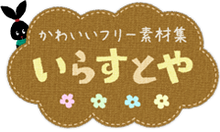Talking about Decisions that Have Been Made by Others
~ことになる
The ~ことになる pattern is similar to the ~ことにする pattern that we learnt in Year 12.
- With ~ことになる, the decision is not necessarily made by us.
- Or, the decision could have been forced on us by circumstances beyond our control.
- We may not know who made the decision - it's could just be the way things are.
EXAMPLES
私の町には、仕事が少ないので、もっと大きい町にひっこしすることになりました。
- There are few jobs in my town, so I've had to move to a bigger town.
|
In the example above, the sentence ends in the past tense because the action was a one-off and has already taken place.
|
私の学校では、水曜日のじゅぎょうは 2時におわることになっています。
- At my school, classes on Wednesdays finish at 2 o'clock.
|
In the example above, the sentence ends in the present continuous tense because the action is ongoing. i.e. Classes end at 2 every Wednesday.
|
11月に、大学の入学しけんをうけることになっています。
- (It has been decided that) we will sit our university entrance exams in November.
|
In the example above, the sentence ends in the present continuous tense because although the decision has been made and continues to affect us, the action has not yet taken place.
|

